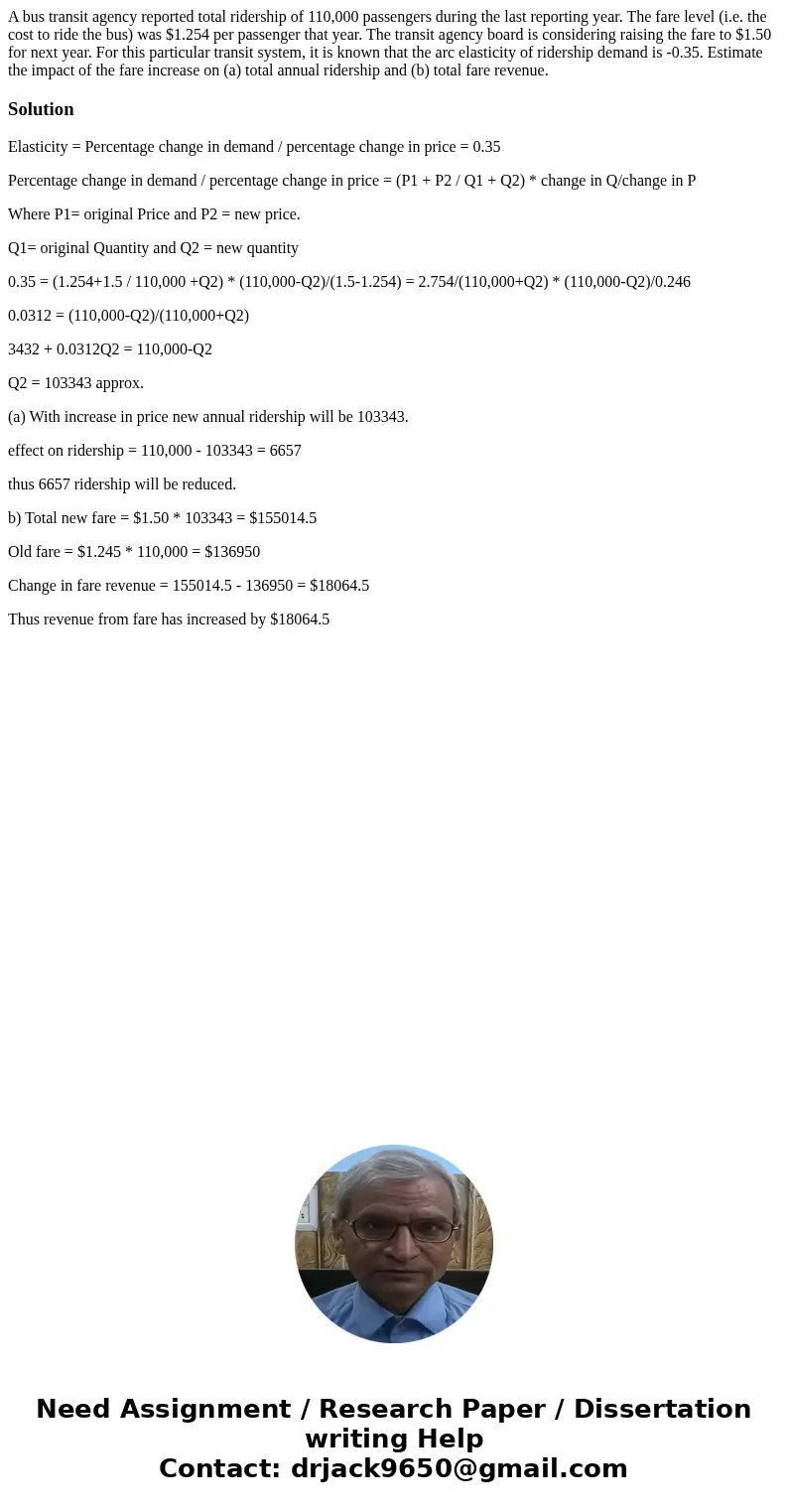A bus transit agency reported total ridership of 110000 pass
A bus transit agency reported total ridership of 110,000 passengers during the last reporting year. The fare level (i.e. the cost to ride the bus) was $1.254 per passenger that year. The transit agency board is considering raising the fare to $1.50 for next year. For this particular transit system, it is known that the arc elasticity of ridership demand is -0.35. Estimate the impact of the fare increase on (a) total annual ridership and (b) total fare revenue.
Solution
Elasticity = Percentage change in demand / percentage change in price = 0.35
Percentage change in demand / percentage change in price = (P1 + P2 / Q1 + Q2) * change in Q/change in P
Where P1= original Price and P2 = new price.
Q1= original Quantity and Q2 = new quantity
0.35 = (1.254+1.5 / 110,000 +Q2) * (110,000-Q2)/(1.5-1.254) = 2.754/(110,000+Q2) * (110,000-Q2)/0.246
0.0312 = (110,000-Q2)/(110,000+Q2)
3432 + 0.0312Q2 = 110,000-Q2
Q2 = 103343 approx.
(a) With increase in price new annual ridership will be 103343.
effect on ridership = 110,000 - 103343 = 6657
thus 6657 ridership will be reduced.
b) Total new fare = $1.50 * 103343 = $155014.5
Old fare = $1.245 * 110,000 = $136950
Change in fare revenue = 155014.5 - 136950 = $18064.5
Thus revenue from fare has increased by $18064.5

 Homework Sourse
Homework Sourse